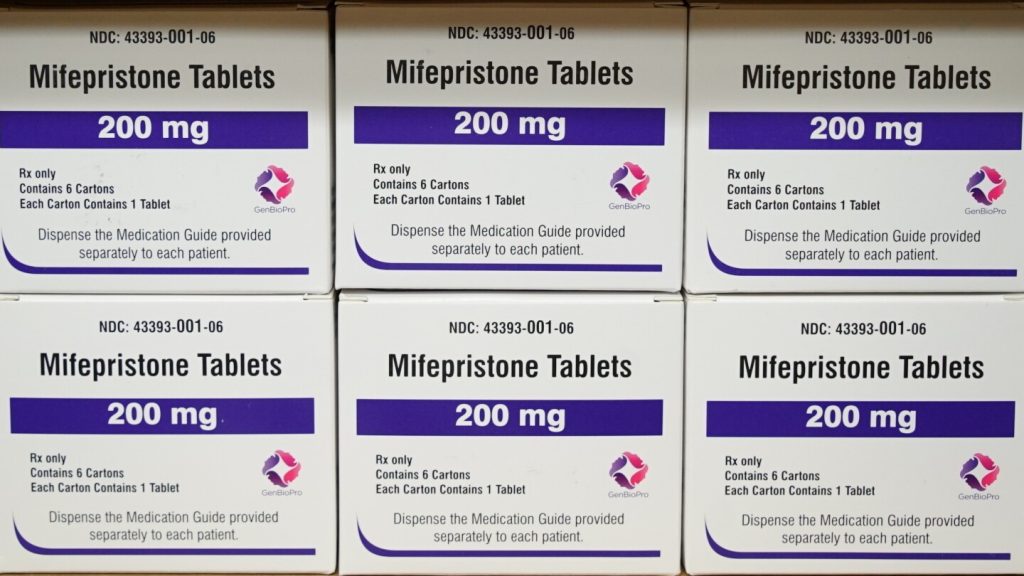The Supreme Court is set to hear arguments this week on restrictions regarding the medication mifepristone, commonly used for medication abortions. This case has significant implications for women across America and could impact the upcoming race for the White House. The ruling in question would limit access to mifepristone, shortening the time frame for its use in pregnancy from 10 weeks to seven weeks.
A KFF poll revealed that the majority of adults in the U.S. believe medication abortion pills are safe when taken as directed by a doctor, with confidence in the FDA to ensure the safety and effectiveness of medications. The decision on this case is expected by late June, but the Supreme Court is likely to see more abortion-related cases in the future, given ongoing legal battles over state restrictions and the potential for new federal limits if former President Donald Trump returns to the White House.
The number of medication abortions is rising due to factors such as convenience, privacy, and the avoidance of anti-abortion protesters at clinics. In some states, it is becoming easier to access these drugs, with CVS and Walgreens announcing pilot programs to dispense them at their pharmacies. For women living in states with abortion bans or restrictions, mail order delivery may be their only practical option.
Abortion opponents challenged mifepristone restrictions following a Supreme Court decision in June 2022 that overturned the constitutional right to an abortion. The appeal initially led to a ruling by a federal judge in Texas to revoke the drug’s approval entirely, but the 5th U.S. Circuit Court of Appeals preserved the FDA’s initial approval while reversing some conditions for administering the drug. The Supreme Court put the modified ruling on hold and agreed to hear the case.
Arguments from both sides of the case focus on the safety and regulation of mifepristone, with the abortion opponents seeking to reinstate safeguards that were previously in place. The administration and medical organizations argue that the changes made by the FDA were based on extensive research and experience, ensuring the safety and effectiveness of the drug. The case could have broader implications for drug approvals and industry regulations.
Overall, the Supreme Court’s decision on mifepristone restrictions will have significant consequences for access to medication abortions and reproductive rights in the United States. The outcome of this case could impact women’s health, medical regulations, and future legal battles over abortion rights. The ruling is expected to be a crucial moment in the ongoing debate surrounding abortion in America.


